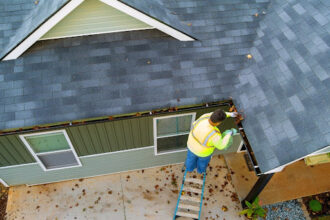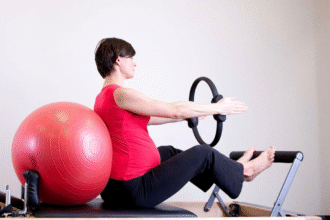When a garage door starts acting up, most people just shrug it off. But those squeaks, jerks, and delays aren’t just annoying—they’re signals. A home’s garage door is more than an entry point; it’s a part of the house’s safety system, energy efficiency, and even curb appeal. In neighborhoods all over the U.S., from Phoenix to Pittsburgh, a broken garage door can disrupt routines and cause security concerns.
- Common Garage Door Problems That Disrupt Daily Life
- Springs and Tension Failures Can Cause Sudden Drops
- Noisy Rollers and Tracks Point to Wear and Tear
- Sensor Problems That Mess with Safety
- Weather-Related Triggers That Break Down Garage Doors
- Cold Weather Can Make Metal Parts Shrink or Snap
- Humidity Affects Sensor Signals and Panels
- Wind Can Knock Tracks Out of Line
- What’s a Simple Fix—and What Needs Pro Help?
- Lubrication Can Solve More Than You Think
- Panel Replacement Is Often Better Than Full Replacement
- Smart Openers Need Skilled Installation
- Risks of Delaying Garage Door Repairs
- Small Issues Become Bigger Problems Fast
- Unbalanced Doors Can Cause Injury
- Insurance May Not Cover Neglect
- How Garage Doors Affect Energy and Comfort
- What Garage Door Sounds Say About Your System
- Conclusion: Listening to the Door Means Caring for the Home
- FAQs
Let’s take a look at what’s going on behind that panel—and what you can do about it.
Common Garage Door Problems That Disrupt Daily Life
Springs and Tension Failures Can Cause Sudden Drops
The torsion springs or extension springs help lift the heavy weight of the door. Over time, they wear out. A loud snap, a door that won’t move, or one that drops too fast could mean your springs are broken. This isn’t just a hassle—it’s a hazard.
If your garage door slams shut or feels heavier than usual, spring failure might be the cause.
Noisy Rollers and Tracks Point to Wear and Tear
Hearing grinding or squealing when you open the door? That’s your rollers or metal tracks crying for help. Dirt buildup, rust, or lack of grease causes friction. Ignoring these signs can lead to more expensive damage later.
A well-maintained track ensures smoother operation and less strain on your opener.
Sensor Problems That Mess with Safety
Many people deal with garage door sensors acting up. If your door reverses without anything in its path, or refuses to close all the way, the sensors might be blocked or misaligned. These are safety devices meant to prevent accidents, especially around kids and pets.
Weather-Related Triggers That Break Down Garage Doors
Cold Weather Can Make Metal Parts Shrink or Snap
In colder regions like Minnesota or New York, freezing temperatures cause metal components to contract. Springs and cables may get brittle and snap without warning. You might also hear more noise than usual due to stiffness.
Winter-proofing your garage door system can prevent a lot of these seasonal breakdowns.
Humidity Affects Sensor Signals and Panels
High humidity, especially in places like Florida, can cause sensor issues and even panel warping. Moisture interferes with electronics and causes rust on key metal parts. That sleek aluminum or wooden door may not look the same once humidity gets to it.
Wind Can Knock Tracks Out of Line
Stormy wind doesn’t just rattle windows—it can shift garage door tracks slightly off balance. A bent track might go unnoticed until the door jams or leans.
Keeping an eye on alignment after a heavy wind can save you from unexpected repairs.
What’s a Simple Fix—and What Needs Pro Help?
Lubrication Can Solve More Than You Think
Sometimes, a little garage door lubricant is all it takes. Creaks and pops could just be from dryness. Apply it to hinges, springs, and rollers—especially before temperature changes.
Panel Replacement Is Often Better Than Full Replacement
If you notice a dent or crack on just one or two panels, replacing only those sections can save money and time. Matching panels can be ordered and swapped without tearing out the whole door.
A damaged panel doesn’t always mean a full overhaul is needed.
Smart Openers Need Skilled Installation
Modern garage door openers that connect to Wi-Fi, Google Home, or Alexa are tricky to install. If you’re upgrading to a smart system, calling a certified technician ensures smooth programming and syncing.
Risks of Delaying Garage Door Repairs
Small Issues Become Bigger Problems Fast
A misaligned sensor today can become a non-working door tomorrow. Springs under pressure don’t last long once they begin to wear. And one stuck roller can damage the motor over time.
Unbalanced Doors Can Cause Injury
Garage doors are heavy. If they become unbalanced, they can fall without warning. This is especially dangerous for kids or pets who play near the garage.
If your door feels lopsided or opens crookedly, don’t delay the fix.
Insurance May Not Cover Neglect
Many homeowner’s insurance policies require regular maintenance. If your door fails due to neglect, the damage to your car, tools, or home interior might not be covered.
How Garage Doors Affect Energy and Comfort
Drafts Waste Energy in Attached Garages
If your garage shares a wall with your living room or bedroom, an unsealed door can let cold air in or push warm air out. This means higher utility bills and an uncomfortable home.
Insulated garage doors help keep the indoor temperature steady.
Modern Doors Support Smart Energy Use
Newer models come with foam cores, rubber seals, and even solar-ready options. Upgrading doesn’t just add safety—it can make your whole home smarter and more efficient.
What Garage Door Sounds Say About Your System
Each noise tells a story. A bang might signal a broken spring. A grind might point to off-track rollers. A buzz could mean the opener is struggling. Learning this “language” helps catch problems early.
Don’t tune out weird sounds—they’re warning signs your door needs attention.
Conclusion: Listening to the Door Means Caring for the Home
Your garage door may not seem like a big deal—until it stops working. It protects your car, supports your safety, and keeps your space efficient. Every strange sound or small delay is worth paying attention to. Whether it’s a stretched spring, a dirty sensor, or a clunky opener, the solution often starts with awareness.
Taking care of your garage door means taking care of your home’s safety, comfort, and value—and sometimes, peace of mind comes from simply listening.
FAQs
How often should I get my garage door checked?
A basic check every 6–12 months helps catch small problems before they get big. Inspections before winter or summer are especially helpful.
Why won’t my garage door close all the way?
This often means your safety sensors are misaligned or dirty. Check for debris, and clean the lenses with a soft cloth.
Is it dangerous to replace springs myself?
Yes. Garage door springs are under high tension. If mishandled, they can cause serious injury. It’s safer to call a pro.
Can a garage door affect my home’s energy bill?
Absolutely. If it’s unsealed or poorly insulated, it can let outside air in, especially in attached garages. Upgrading to insulated doors helps a lot.

















